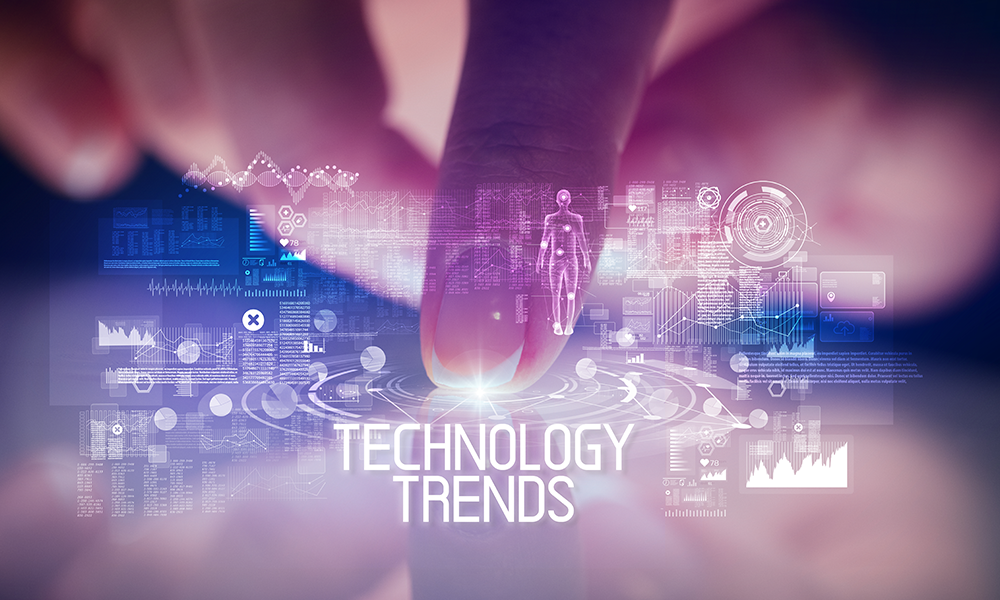As 2024 progresses, several technology trends will have a significant impact on various sectors. From artificial intelligence (AI) to blockchain and sustainability technologies, these innovations are shaping the future and bringing transformative potential to industries around the world. Here is a comprehensive overview of the most influential technology trends this year.
1. Artificial Intelligence and Machine Learning
AI continues to be at the forefront of technological advancements. In 2024, AI will be increasingly integrated into everyday applications, from health diagnostics to autonomous driving. Machine learning algorithms are being refined to provide more accurate predictions and insights, improving decision-making processes in industries such as finance, retail, and manufacturing.
The growth of AI is also driven by advances in natural language processing (NLP), which powers chatbots and virtual assistants and makes human-computer interactions more intuitive. Businesses are using AI to personalise customer experiences and improve operational efficiency.
2. Quantum Computing
Quantum computing is another trend that will gain momentum in 2024. This revolutionary technology has the potential to solve complex problems that are currently inaccessible to classical computers. Industries such as cryptography, materials science, and pharmaceuticals will greatly benefit from advances in quantum computing.
Tech giants such as IBM, Google, and Microsoft are investing heavily in quantum research to achieve quantum supremacy. The ability to perform calculations at unprecedented speeds could revolutionise data analysis and problem-solving capabilities across a range of sectors.
3. Blockchain and Decentralised Finance (DeFi)
Blockchain technology continues to transform industries by providing a secure and transparent transaction mechanism. In 2024, blockchain applications will extend beyond cryptocurrencies to areas such as supply chain management, healthcare, and election systems. The rise of decentralised finance (DeFi) is particularly noteworthy as it enables financial transactions without intermediaries, reducing costs and improving efficiency.
Smart contracts based on blockchain automate complex processes and ensure the reliability and transparency of various transactions. This trend is expected to grow as more industries realize the potential of blockchain technology to streamline operations and improve security.
4. Sustainability and Green Technology
Sustainability will be a key focus in 2024, with green technologies driving innovations aimed at reducing environmental impact. Renewable energy sources such as solar and wind are becoming more efficient and cheaper. Advances in energy storage technologies such as improved battery systems will also support the transition to sustainable energy solutions. Additionally, sustainable practices are being incorporated into manufacturing and supply chain processes to reduce carbon emissions. Companies are increasingly adopting circular economy principles and focusing on recycling, reusing and minimising waste. Pursuing sustainability is not only beneficial for the environment, but it also improves brand reputation and compliance with regulatory standards.
5. 5G and Connectivity
The introduction of 5G technology will revolutionise connectivity, providing faster and more reliable internet connections. This increased connectivity will enable the widespread adoption of the Internet of Things (IoT), allowing devices to seamlessly communicate with each other to provide smarter solutions in home and industrial environments.
5G will also be important for advancements in technologies such as autonomous vehicles, telemedicine, and augmented reality (AR). The increased bandwidth and reduced latency of 5G networks will make it easier to develop and deploy these next-generation technologies .
6. Edge Computing
Edge computing is changing the way data is processed and analysed. Edge computing brings computation closer to the data source, reducing latency and improving real-time data processing capabilities. This is especially beneficial for applications that require instantaneous insights, such as autonomous vehicles, industrial automation, and smart cities.
In 2024, the need for efficient data processing and improved performance for IoT applications is expected to accelerate the adoption of edge computing. As more devices become connected, the ability to process data locally, rather than relying on centralised cloud servers, becomes increasingly important.
Conclusion
These technology trends will not only shape the future, but also provide many opportunities for innovation and growth in various sectors. It is important for businesses and individuals alike to stay up to date and adapt to these trends. If you want to learn more about these transformative trends, visit our trusted sources for more in-depth information.
For more of the latest developments and in-depth analysis, follow us on Technology Trends
